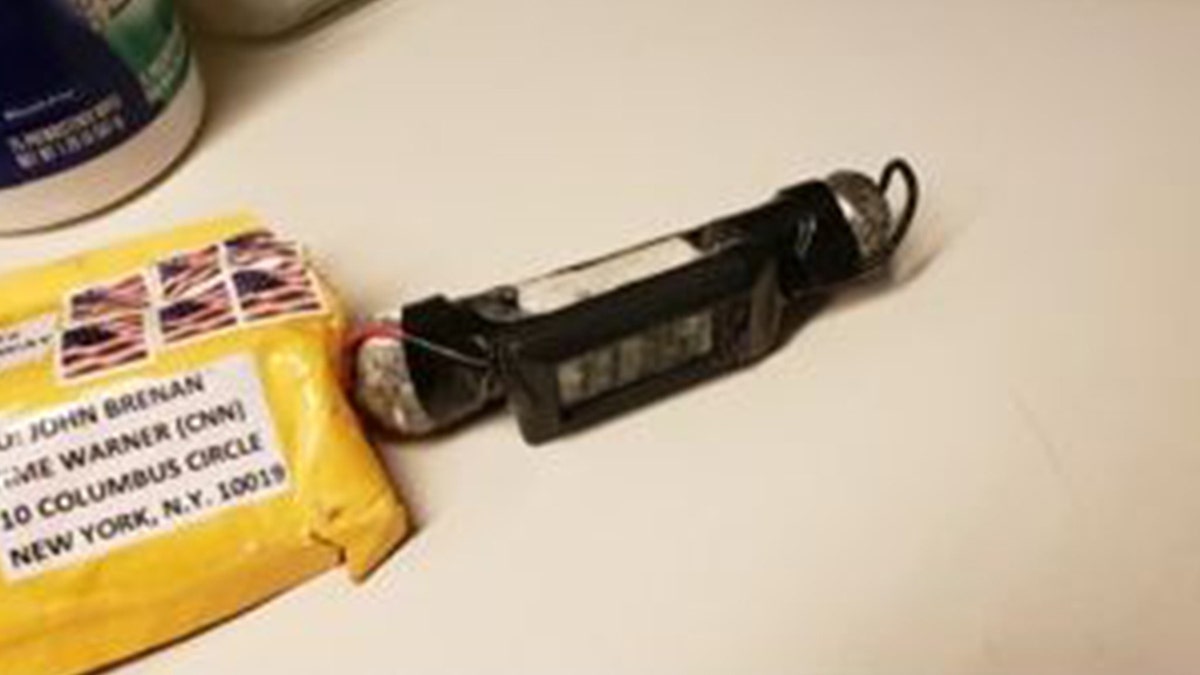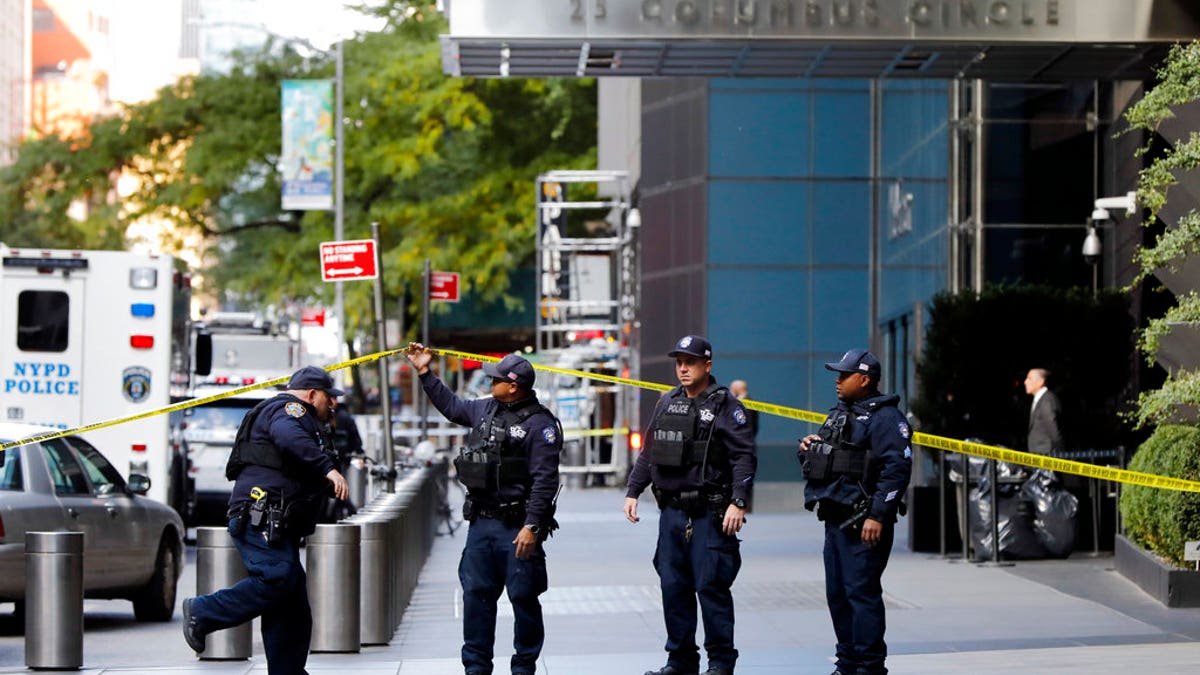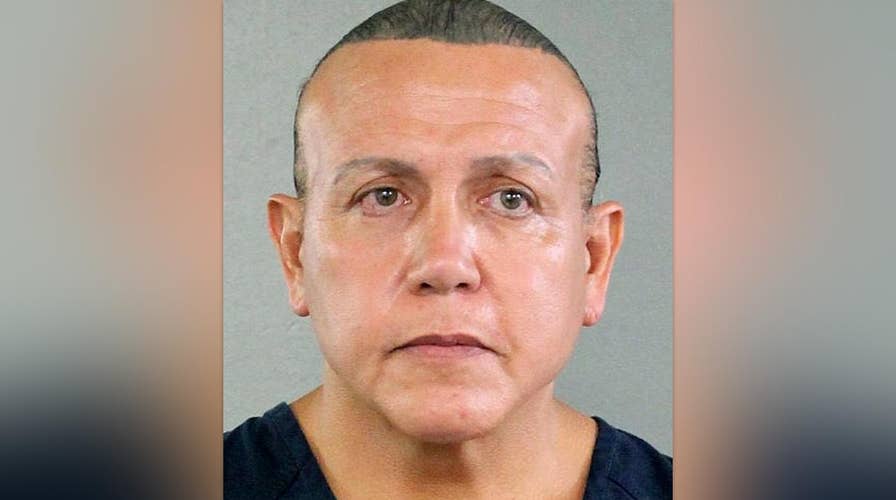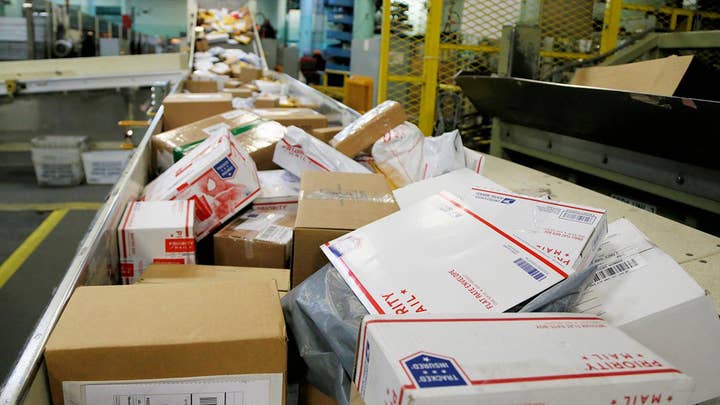Mail bomb suspect Cesar Sayoc faces up to 48 years in prison
Federal authorities arrest 56-year-old Cesar Sayoc and charge him with mailing at least 13 package bombs to Democrats including two former presidents; chief intelligence correspondent Catherine Herridge reports.
Cesar Sayoc, a DJ and former stripper who stands accused of sending 13 pipe bombs through the mail to a range of Democrats and critics of President Trump, left a trail of forensic and digital evidence behind that authorities used to track him down and arrest him.
In the hours before Sayoc was taken into custody, he was doing what he enjoyed: spinning Top 40 hits overlooking the stage at the Ultra Gentlemen's Club in Palm Beach, Florida.
Authorities were at that very moment linking DNA found on two bomb packages to a sample that was previously collected by the state of Florida and matching his fingerprints to one from a separate mailing that law enforcement officials said Sayoc sent.
Investigators had also been scrutinizing his social media accounts and found the same spelling mistakes for his online posts — "Hilary" Clinton, Debbie Wasserman "Shultz" — as on the mailings he'd soon be charged with sending.

A photo of the explosive device addressed to former CIA Director John Brennan. The package was sent to the Time Warner Center, where CNN's New York City office is located. (NYPD Source)
Besides that, his social media posts trafficked in online conspiracy theories, anti-Semitism and white supremacy.
The clues, authorities say, led them to a 56-year-old man with a long criminal history who'd previously filed for bankruptcy and appeared to be living in his van, showering on the beach or at a local fitness center.
In the end, prosecutors who charged Sayoc with five federal crimes Friday say the fervent supporter of President Trump afforded them a critical break in a coast-to-coast investigation by leaving behind a host of clues.
CESAR SAYOC, MAIL BOMBING SUSPECT, ARRESTED IN FLORIDA
The bubble-wrapped manila envelopes addressed to Democrats such as Barack Obama and Hillary Clinton and intercepted from Delaware to California held vital forensic evidence that investigators say they leveraged to arrest Sayoc four days after the investigation started.
"Criminals make mistakes, so the more opportunities that law enforcement has to detect them, the greater the chance they're going to be able to act on that, and that appears to be what happened here," former Justice Department prosecutor Aloke Chakravarty, who prosecuted the Boston Marathon bombing case, told the Associated Press.

New York City Police Dept. officers arrive outside the Time Warner Center, in New York, Wednesday, Oct. 24, 2018.
(AP)
On the day the first package arrived at the estate of George Soros, the billionaire activist, Sayoc, then unknown to law enforcement, retweeted a post saying, "The world is waking up to the horrors of George Soros."
Additional packages followed the next day, with each delivery creating more unease.
As the FBI worked around the clock, Americans debated whether the rhetoric of President Trump and some of his supporters had fanned the flames of hate and anti-Semitism.
Sayoc's colleagues at the Palm Beach club had different takes on the accused mail bomber.
"I didn't know this guy was mad crazy like this," said Stacy Saccal, the club's manager. "Never once did he speak politics. This is a bar. We don't talk politics or religion in a bar, you know?"
But Scott Meigs, another DJ at the club, had a different experience.
He said Sayoc had been talking about politics to everybody at the club for the last two weeks, preaching the need to elect Republicans during the November elections. "I just figured he was passionate about the upcoming elections."
The next morning, he was taken into custody near an auto parts store in Plantation, Fla., north of Miami. Across the street, Thomas Fiori, a former federal law enforcement officer, said he saw about 50 armed officers swarm a man standing outside a white van with windows plastered with stickers supporting Trump and criticizing media outlets including CNN.
They ordered him to the ground, Fiori said, and he did not resist.
"He had that look of, 'I'm done, I surrender,'" Fiori said.
The Associated Press contributed to this report.


